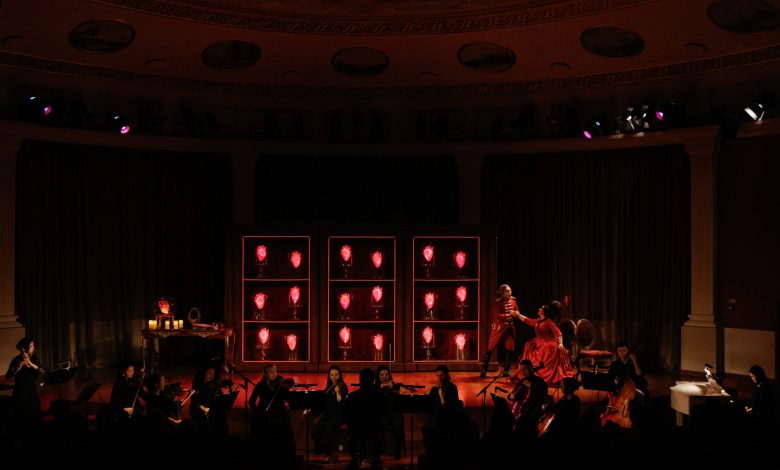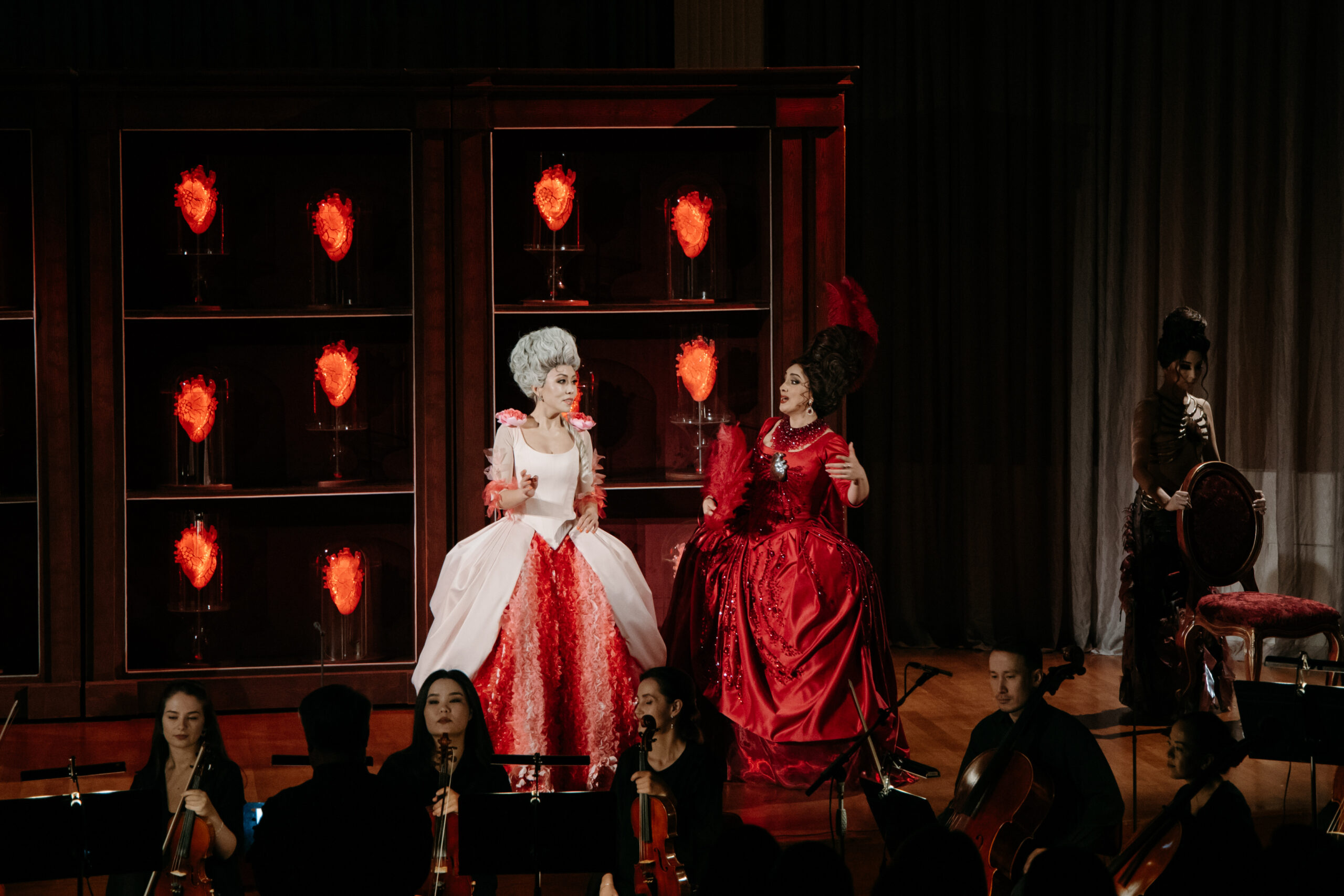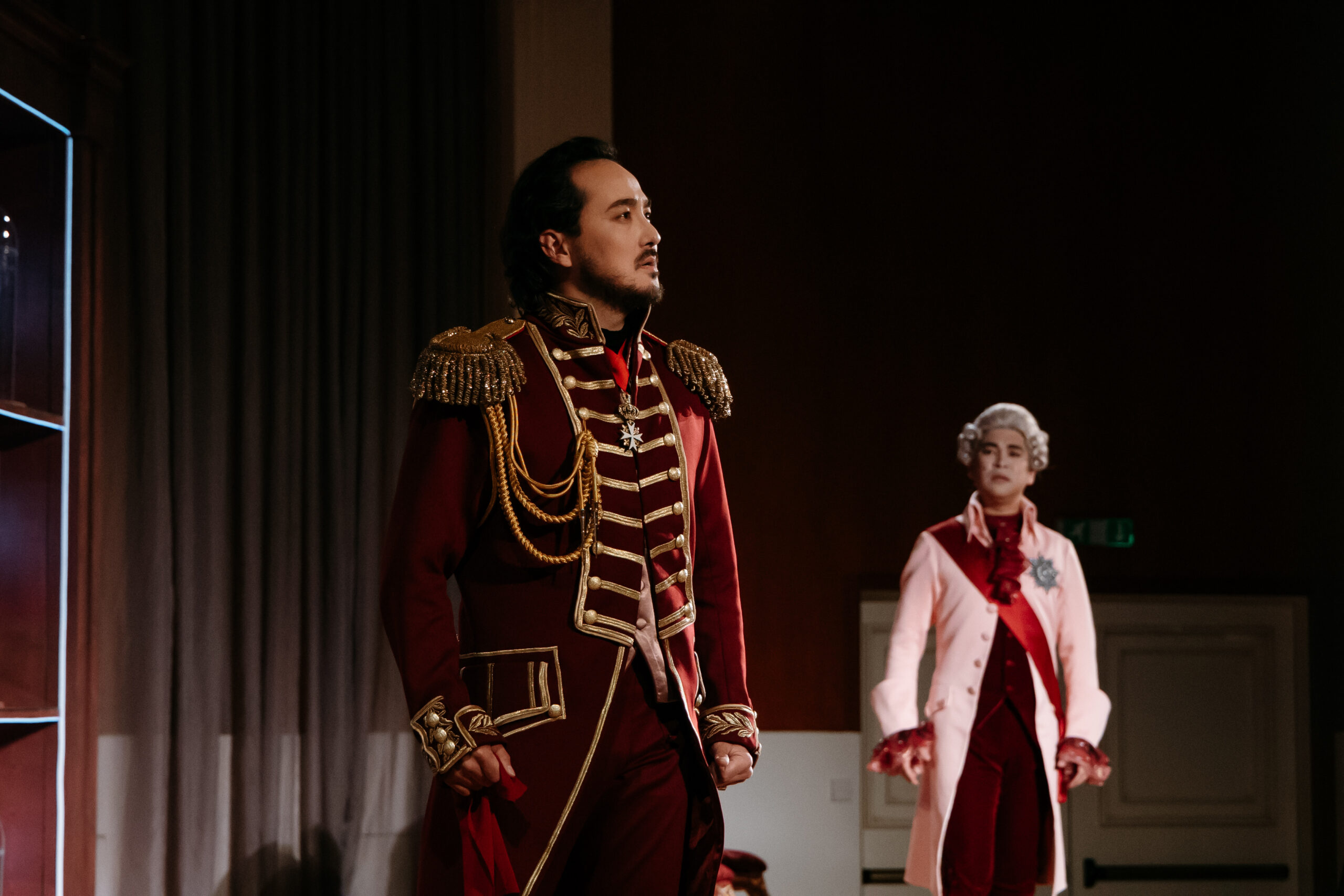Astana Opera Premieres Vivaldi’s ‘Orlando Furioso’ Opera

ASTANA – Astana Opera premiered “Orlando Furioso” (Furious Orlando) by great Italian composer Antonio Vivaldi on Oct. 4. On the stage of the Chamber Hall named after Kulyash Baiseitova, Vivaldi fans and baroque-opera lovers could fully immerse themselves into the tale of lovers, dark magic and madness.

“Orlando Furioso” is closely tied to the Baroque era, both in its origins and musical style. Photo credit: Astana Opera
Based on Ludovico Ariosto’s epic poem, the “Orlando Furioso” opera dates from 1727. The convoluted plot of the opera is set on the island of the evil sorceress Alcina, who uses her magic to enchant those she desires. The story follows the knight Orlando, who consumed by unrequited love for the beautiful Angelica, spirals into madness. He undergoes a range of emotions, shifting from deeply in love to completely deranged, before ultimately finding his way to recovery.
Music director and conductor of the new opera production Abzal Mukhitdin, who specialized in Baroque music during his Master’s studies, knew exactly how to present the music to its maximum advantage in this production.
“In general, chamber opera traces its origins to the Baroque era, and it was this direction that laid the basis for further development of opera,” he said.

Rassul Zharmagambetov as noble knight Orlando. Photo credit: Astana Opera
In “Orlando Furioso,” the chamber orchestra departs from the typical inclusion of harps, timpani, and trombones. Instead, it primarily features a string ensemble, with occasional solos from the flute or oboe adding delicate nuances to the music.
“Such a light orchestra offers us a unique opportunity to trace how the musical language developed. Vivaldi’s approach to the vocal parts is also interesting. The composer makes extensive use of countertenors and contraltos, paying special attention to the low voices that perform coloratura. It is important to note here that coloratura is not a characteristic of the height of the voice, as is commonly thought, but of its mobility. Thus, both tenor and baritone can be coloratura voices. In this opera, there is a profound interplay between instrumental and vocal lines, which emphasizes Vivaldi’s singularity and innovation as a composer,” added Mukhitdin.
Stage director and vocal coach from Italy, Alla Simonishvili, presented a fresh look at the famous classic.
“Why was ‘Orlando Furioso’ chosen to be staged? Because it is a dynamic, dramatic and emotionally rich opera. As for the music, of course, Baroque music is also specific, it is instrumental and requires particular vocal capabilities, that is, here we are talking about fast singing. The artists who perform this repertoire, I think that they gain colossal skills, first of all, because this provides an extraordinary training ground that teaches singing techniques, the balance of sound, volume, and specific vocals,” said Simonishvili.
On the first premiere day, Rassul Zharmagambetov sang the title role of the noble warrior Orlando, leading a trio of outstanding female performers – Tatyana Vitsinskaya as the evil enchantress Alcina, Honoured Worker of Kazakhstan Saltanat Akhmetova as a female warrior Bradamante and Assem Sembina as Angelica.
Audiences can catch “Orlando Furioso” on Oct. 5 as well.

